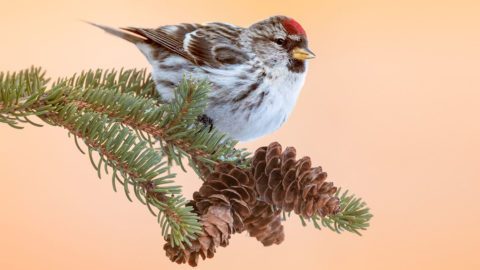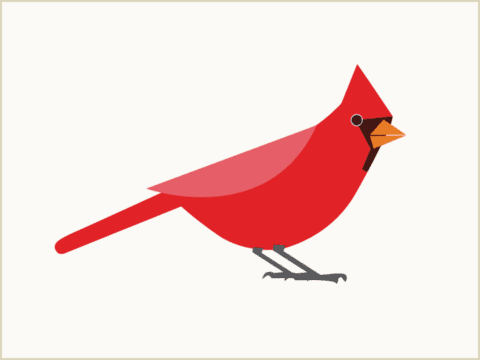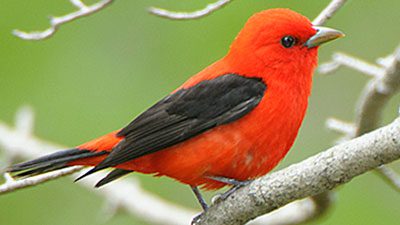Get More From Merlin Bird ID With These Powerful Features
By Drew Weber
June 4, 2019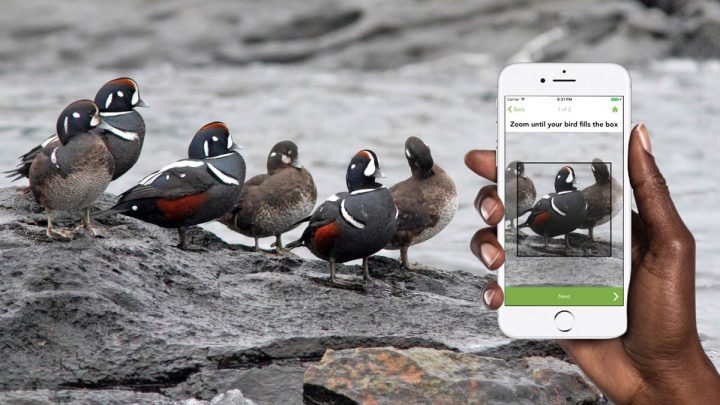
From the Winter 2020 issue of Living Bird magazine. Subscribe now.
In 2014 we introduced our free free Merlin Bird ID app, designed to help people answer their #1 question: What’s the name of the bird I just saw? The app works amazingly well thanks to its “smart” approach: users answer a few simple questions or, snap a picture and then the app uses eBird data to present a short list of possibilities tailored to your location and date. More than a million downloads later, the app is more powerful than ever—it now covers more than 37,0500 species across 40 countries, and it can even ID birds in photos., and now it can even ID birds singing around you!
One thing we’ve realized as we talk to people about Merlin is that a lot of people use it for one main function, but may not be aware of other great features just a few taps away, including a full set of bird songs, automatic identification of birds in photos, ways to interface with eBird lists, and much more. How many of these features do you use?
Identify birds singing around you
Merlin Bird ID can now identify the birds singing around you. Simply press record, point the microphone at a singing bird, and you’ll get real-time suggestions of who’s singing. Learn more about Merlin Sound ID.
Merlin identifies bird sounds using breakthroughs in machine learning technology to recognize bird sounds based on spectrograms—visual representations of sounds. Thousands of recordings from eBird contributors help “train” Merlin to recognize spectrograms of each bird species. Merlin’s new Sound ID feature is available for species in the U.S. and Canada, with new regions and species coming soon.
Identify a photo
If you can get a photo of a bird on your smartphone, you can use Merlin to identify it. You can snap a photo with your phone, choose a photo from your phone’s gallery, or even take a photo of a photo or a snapshot from the back of a camera. The photo doesn’t need to be great, either—Merlin’s image recognition can probably handle it.
Photo ID was developed in collaboration with Dr. Pietro Perona’s computational vision lab at Caltech, Dr. Serge Belongie’s computer vision group at Cornell Tech, and collaborators on the Visipedia project. Merlin Photo ID uses computer vision technology to identify birds in photos. Merlin learns to recognize bird species based on training sets of hundreds of thousands of photos from birders who share their images with eBird and the Macaulay Library.
Listen to songs and calls
Merlin doubles as a set of bird songs and calls you can use as a reference when you’re outside. If you hear something you don’t recognize, use the Explore Birds feature to search or browse through the species in your app. Pick a species and tap the Sounds tab to open up a list of recordings of the species’ most common sounds.
Set your location so you can ID birds even without Internet
Merlin is designed to help you identify birds no matter how deep into the forest or field you are. This is important when you are traveling off the beaten path, or even if you have spotty Internet around your hometown. You don’t want to be stuck not knowing what bird you are looking at just because you can’t connect!
The key to using Merlin Bird ID when you’re offline is to set your location ahead of time. Tap on Explore Birds, then look for the filter icon in the top right of your screen. Tapping this will open up a panel where you can set your location to whatever your destination is. When you are off adventuring, those locations you set will be available in the history of locations, and will work completely offline.
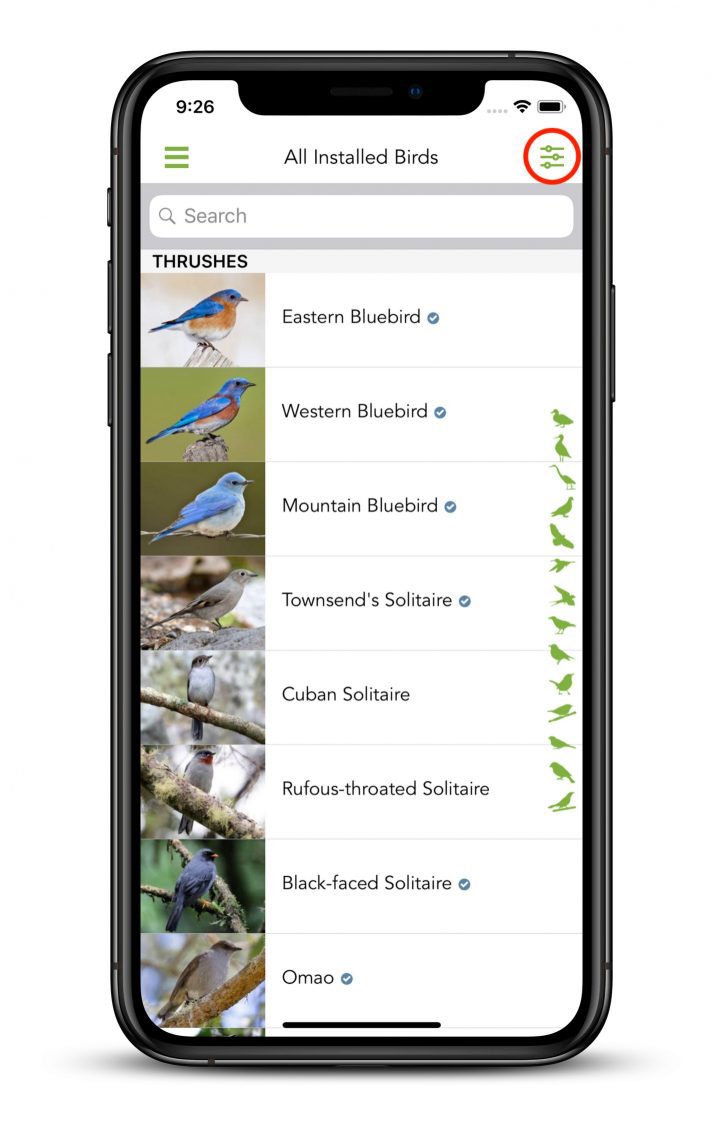
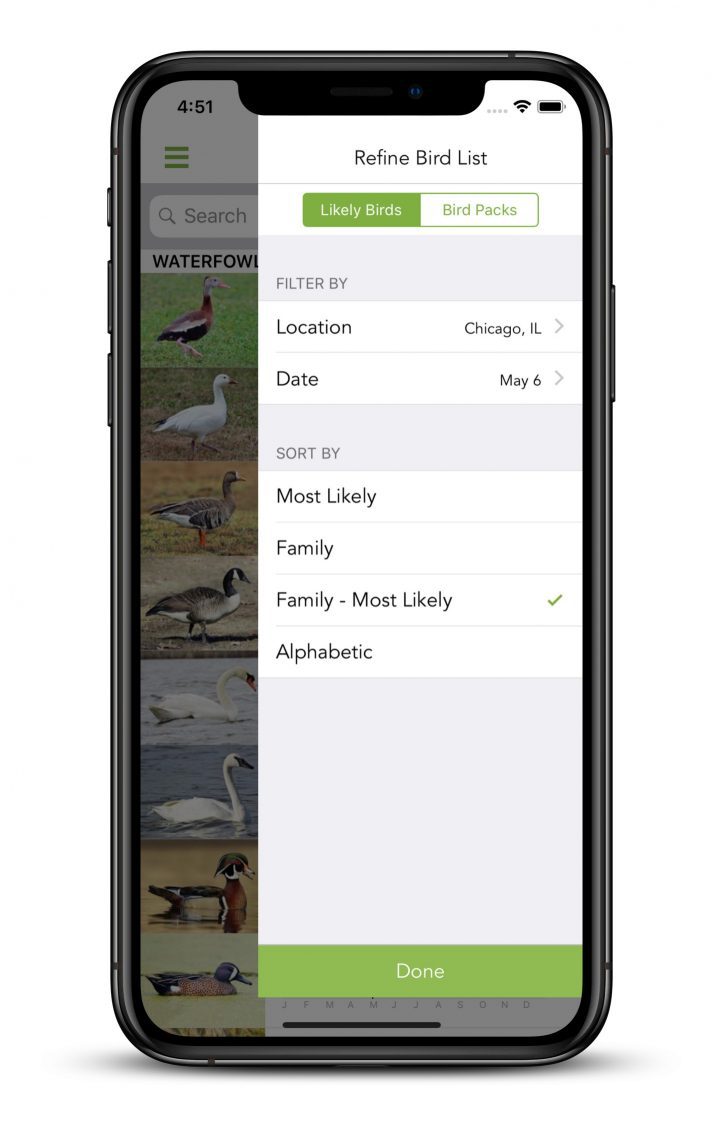
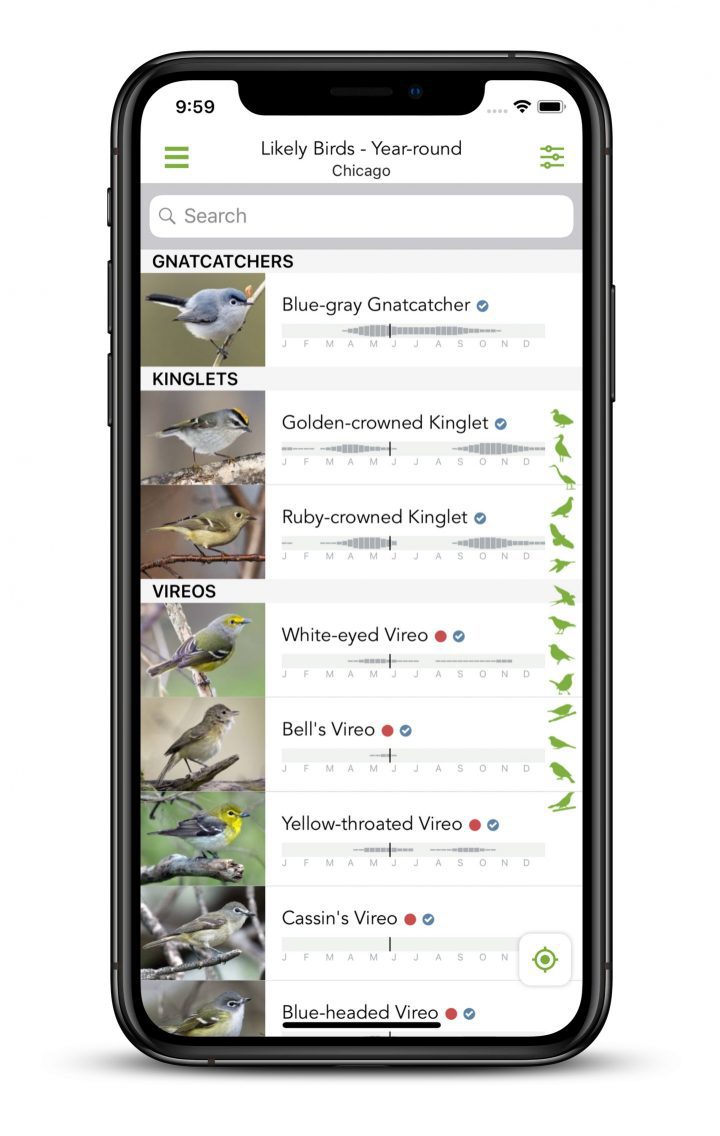
Get a custom list of birds for any location
Sometimes you don’t want to use Merlin Bird ID to identify birds one by one, you just want a list of which birds are most likely in an area. Use Explore Birds to do this. With Explore Birds open, tap on the filter icon in the upper right, tap filter by Likely Birds, and then choose your location and date. Merlin will build a custom list of birds for your location so you can focus on learning just the birds you’re likely to see.
Bonus tip: With the filter panel open, set the Sort order to Most Likely. Instead of viewing birds alphabetically or taxonomically, you’ll have a nicely ordered list of birds from most common to least common. Scan that list to figure out which birds to focus on first.
Get jazzed about your vacation
As a bird watcher, one of the side benefits of any travel is the opportunity to see new birds. You can download Merlin bird packs for popular vacation spots like Hawaii, the Caribbean, Central America, Europe, and many other parts of the world. If you aren’t sure what’s available, open Merlin and tap the three horizontal lines icon at the top left of the screen. Select Bird Packs to see what’s available. We keep releasing new packs, so check back often if you don’t see what you need!
Bonus tip: Set Explore Birds to your vacation destination, and sort by Most Likely (see previous section). This will give you the list of species that you are most likely to jump off the plane and see. Study these, and you’ll feel right at home.
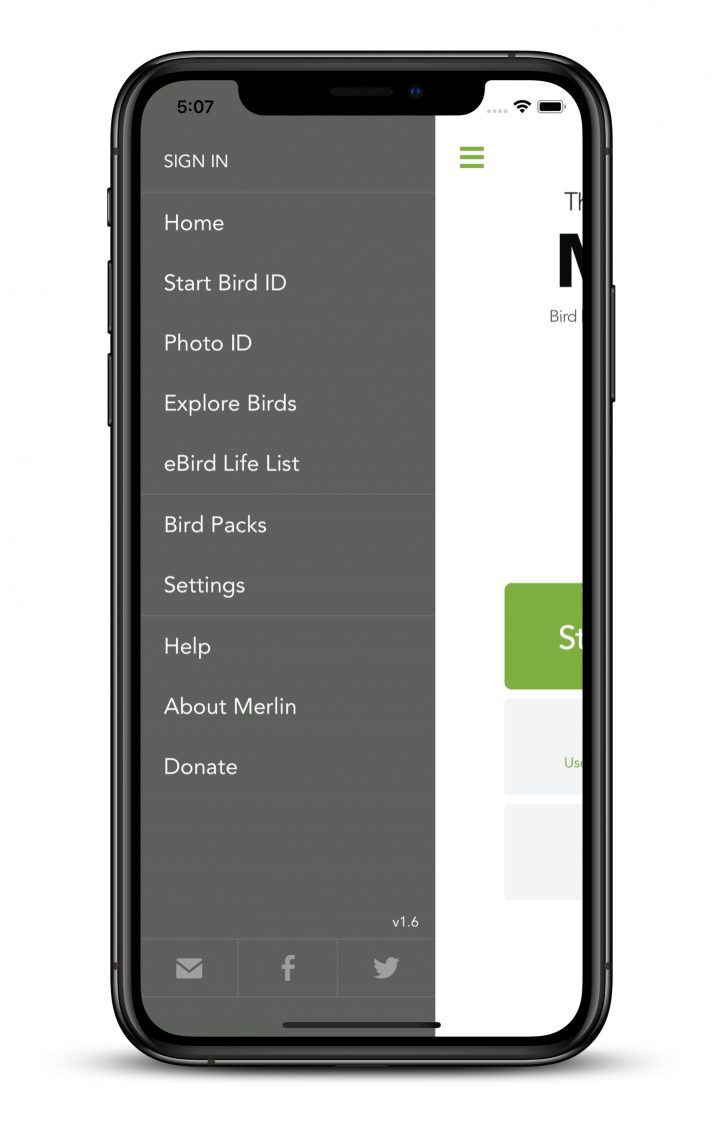
Find birds you’ve never seen before
If you already use eBird, you can link your life list with Merlin. From the start screen, tap the three horizontal lines icon in the top left and select eBird Life List, then log in with your eBird account. Once you’ve done this, you can use Merlin to explore birds you’ve seen—you’ll see check marks across the app that denote species you’ve reported to eBird. On Explore Birds, you can even hide the birds already on your life list—this creates a customized list of target species for any location in the world. These custom lists make for great study tools and help you know what to expect when you are out birding.
Find out when birds are passing through
Once you’ve set your location in Explore Birds (see “Set Your Location,” above), the app will display eBird bar charts for each species that let you know how common the bird is in your location throughout the calendar year. It even helpfully adds a dark line to show you the current date. With a quick glance, you can see which birds are around in which season, and get extra detail about precisely when migrant species are likely to be passing through. Glance through the list to refresh your memory on which birds to expect in the coming weeks and you’ll be super prepared for your next birding excursion.
See regional variations in bird plumages
Lots of bird species look different from place to place across their range—common examples include Song Sparrows, Red-tailed Hawks, and Dark-eyed Juncos. Merlin’s photo galleries have you covered for all this variation, in addition to showing what males, females, and immature birds look like for each species.
Merlin Bird ID is a free app for iOS and Android devices. Download it here:
All About Birds
is a free resource
Available for everyone,
funded by donors like you
American Kestrel by Blair Dudeck / Macaulay Library
